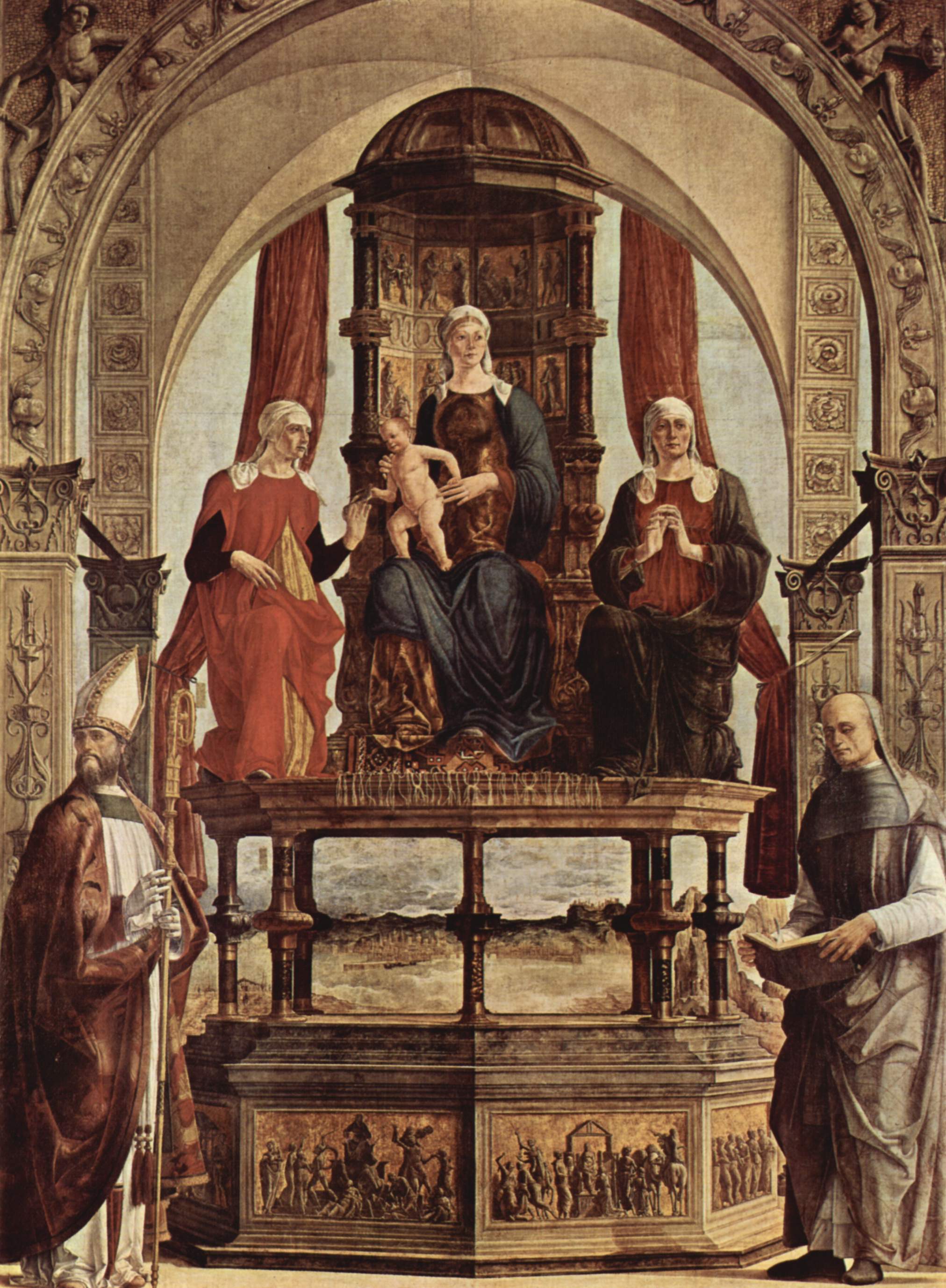|
Forum Popilii
Forum Popilii (Italian: Forlimpopoli) is a Catholic titular see. The current Titular Bishop of Forum Popilii is Robert Joseph Fisher. History Forum Popilii, today Forlimpopoli, near Forlì in Italy, was founded in 173 BC by the Consul M. Popilius Laenas. The first bishop is supposed to have been St. Rufillus, appointed by Pope Sylvester, and he is supposed to have transformed a temple of Isis into a church. At all events St. Rufillus is the patron of the city, and the church in which his body is preserved is said to have been an ancient temple of Hercules. In 500 Asellus, Bishop of Forlimpopoli, was present at the Roman synod that passed on the election of Pope Simmaeus, and in 649 Bishop Stephen attended the Roman council concerning the Monothelites. This city had much to suffer from the Lombards, and in 665 or 670, while the people were assembled in the cathedral for the ceremonies of Holy Saturday, it was suddenly attacked by King Grimoald, who pillaged it and butchered nu ... [...More Info...] [...Related Items...] OR: [Wikipedia] [Google] [Baidu] |
Forlimpopoli
Forlimpopoli (; rgn, Frampùl) is a town and ''comune'' in the province of Forlì-Cesena, north-eastern Italy. It is located on the Via Emilia between Cesena and Forlì. History The name of Forlimpopoli derives from the Roman ''Forum Popilii'', most likely connected to the consul Publius Popilius Laenas, who founded it in 132 BC. The area has been inhabited since Palaeolithic times, as proved by recent archaeological discoveries. Later it was settled by the Umbri and the Gauls from the Pianura Padana. In the 1st century BC ''Forum Popili'' become a ''municipium'', and flourished due to its location near the important port of Classis (for which it provided amphorae for wine transport), as well as its own agricultural production. It started to decay in the 3rd century AD, and, as in the High Middle Ages the area became marshy, its agricultural output fell drastically. In this period it was part of the Byzantine Exarchate of Ravenna and had its first Catholic bishop in the 5th cen ... [...More Info...] [...Related Items...] OR: [Wikipedia] [Google] [Baidu] |
Peter Damian
Peter Damian ( la, Petrus Damianus; it, Pietro or '; – 21 or 22 February 1072 or 1073) was a reforming Benedictine monk and cardinal in the circle of Pope Leo IX. Dante placed him in one of the highest circles of '' Paradiso'' as a great predecessor of Francis of Assisi and he was declared a Doctor of the Church on 27 September 1828. His feast day is 21 February. Early life Peter was born in Ravenna around 1007, the youngest of a large but poor noble family. Orphaned early, he was at first adopted by an elder brother, who ill-treated and under-fed him while employing him as a swineherd. After some years, another brother, Damianus, who was archpriest at Ravenna, had pity on him and took him away to be educated. Adding his brother's name to his own, Peter made such rapid progress in his studies of theology and canon law, first at Ravenna, then at Faenza, and finally at the University of Parma, that, around the age of 25, he was already a famous teacher at Parma a ... [...More Info...] [...Related Items...] OR: [Wikipedia] [Google] [Baidu] |
Pope Leo XII
Pope Leo XII ( it, Leone XII; born Annibale Francesco Clemente Melchiorre Girolamo Nicola della Genga (; 2 August 1760 – 10 February 1829), was head of the Catholic Church and ruler of the Papal States from 28 September 1823 to his death in February 1829. Leo XII was in ill health from the time of his election to the papacy to his death less than 6 years later, though he was noted for enduring pain well. He was a deeply conservative ruler, who enforced many controversial laws, including one forbidding Jews to own property. Though he raised taxes, the Papal States remained financially poor. Biography Family Della Genga was born in 1760 at the Castello della Genga in the territory of Fabriano to an old noble family from Genga, a small town in what is now the province of Ancona, then part of the Papal States. He was the sixth of ten children born to Count Ilario della Genga and Maria Luisa Periberti di Fabriano, and he was the uncle of Gabriele della Genga Sermattei, who ... [...More Info...] [...Related Items...] OR: [Wikipedia] [Google] [Baidu] |
Roberto Dei Resinelli
The name Robert is an ancient Germanic given name, from Proto-Germanic "fame" and "bright" (''Hrōþiberhtaz''). Compare Old Dutch ''Robrecht'' and Old High German ''Hrodebert'' (a compound of '' Hruod'' ( non, Hróðr) "fame, glory, honour, praise, renown" and ''berht'' "bright, light, shining"). It is the second most frequently used given name of ancient Germanic origin. It is also in use as a surname. Another commonly used form of the name is Rupert. After becoming widely used in Continental Europe it entered England in its Old French form ''Robert'', where an Old English cognate form (''Hrēodbēorht'', ''Hrodberht'', ''Hrēodbēorð'', ''Hrœdbœrð'', ''Hrœdberð'', ''Hrōðberχtŕ'') had existed before the Norman Conquest. The feminine version is Roberta. The Italian, Portuguese, and Spanish form is Roberto. Robert is also a common name in many Germanic languages, including English, German, Dutch, Norwegian, Swedish, Scots, Danish, and Icelandic. It can be use ... [...More Info...] [...Related Items...] OR: [Wikipedia] [Google] [Baidu] |

